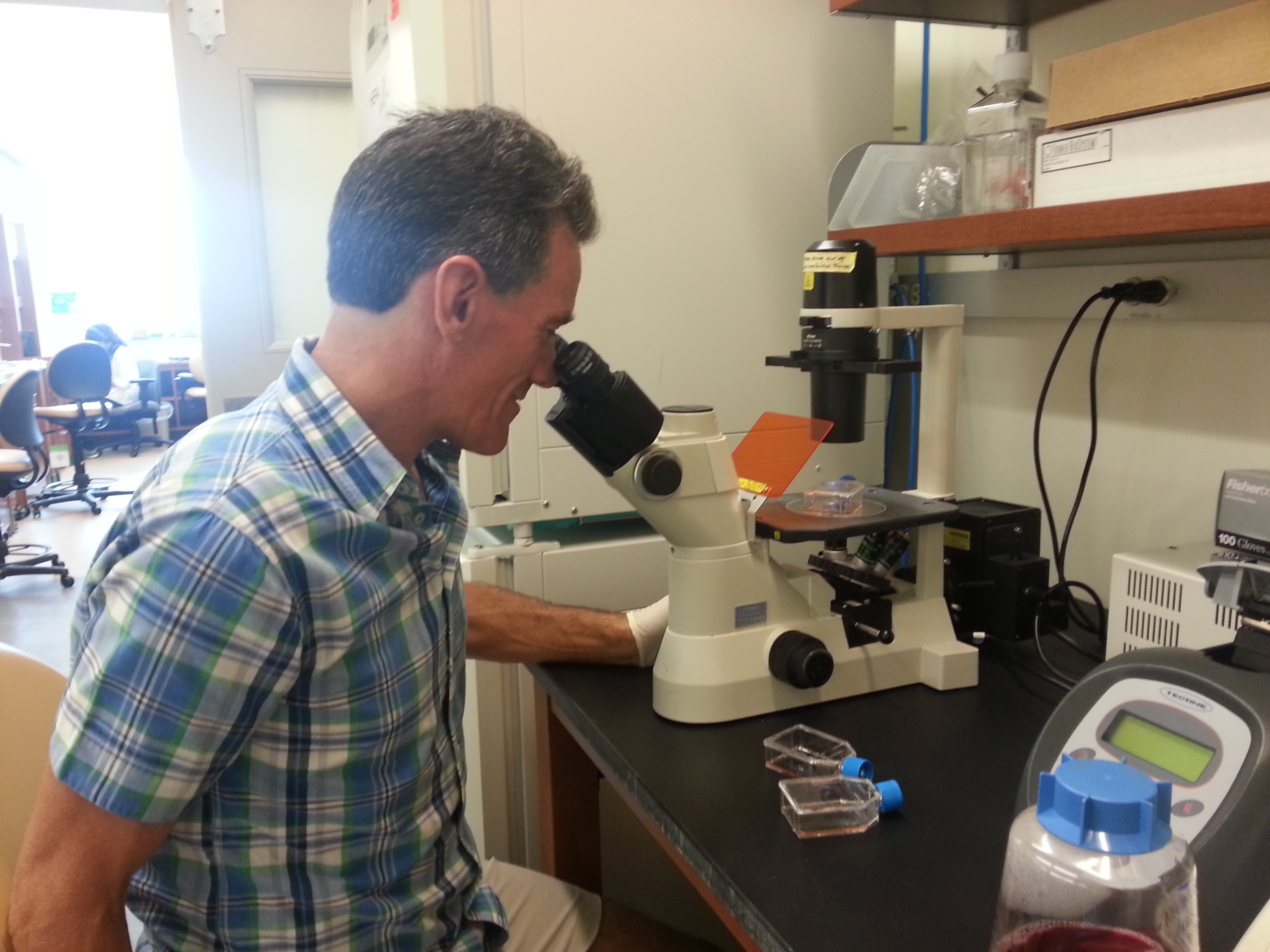Overcoming the severe drive to overeat and obesity that provides the greatest threat to life expectancy and life quality is of upmost and crucial importance for PWS individuals and families. Despite advances in understanding the genetic causes of PWS and the establishment of different mouse models that mimic some clinical components, the underlying cause of PWS is not known and no animal model exists that models the overeating and obesity of PWS. Consequently, in this project we propose to generate a physiologically similar animal model of PWS using the miniature pig. The successful outcome of this work will, for the first time, provide an animal model in which clinical, dietary, pathological, and genetic studies can lead to an understanding of exactly how the PWS genes control how much we eat and how that energy is utilized or stored and results in obesity with increased fat and decreased muscle mass. Having a pig model of severe hyperphagia and obesity in PWS will also allow development and future testing of therapeutic approaches (whether dietary, surgical, pharmacological, genetic, stem cell, and/or neural transplantation). The proposed research to generate an optimal animal model of PWS spans all eight areas of most interest to FPWR, including 1) generation of a relevant animal model for all aspects of PWS, 2) clinical, pathological, and molecular studies of the basis of hyperphagia and obesity, 3) studies on the hypothalamus and other brain areas in PWS-model piglets, 4) studies on muscular hypotonia, hormone abnormalities, sleep, sleep apnea, scoliosis, osteoporosis and other clinical aspects of the PWS-model pigs will be guided by existing studies in all these areas in the pig, 5) the ability to obtain critical tissues such as the brain, muscle and adipose tissue for studies of the PWS-region genes and imprinting, 6) development of a resource for the entire biomedical research community, as well as an animal model that can be used for studies of 7) behavior and 8) learning disabilities based on comparison to ongoing, new studies of normal pig behavior. Consequently, the proposed project can provide an enormous breakthrough for PWS research.
Research Outcomes:
PWS is a complex genetic disorder caused by loss of function of multiple imprinted genes in human chromosome 15. Despite many years of study by many researchers, the pathophysiology basis for PWS is still poorly understood and other than GH treatment, which improves several clinical aspects of PWS, there remains no specific therapeutic approach, particularly for the hyperphagia (uncontrolled over-eating) and severe obesity that are typical of PWS. Although mouse models of PWS recapitulate some of the clinical components of the disorder, none develop early-onset hyperphagia or the severe obesity of the human disease. Therefore, alternative animal models are needed to study the biomedical basis and therapeutic approaches for the eating disorder and obesity. We propose that miniature pigs should provide an ideal model for PWS and other body composition disorders, since they have a more similar body size, physiology, anatomy, and genome to human than does the mouse, and hence we predict are more susceptible to development of obesity. Furthermore, technologies exist in the pig to produce genetic models of disease. In our FPWR funded work, we have identified the complete PWS-equivalent region with all the corresponding imprinted genes and gene regulatory sequences in the pig. This work is described in a single manuscript that we are preparing to submit for publication. Our findings have improved our understanding of how the PWS region has changed during mammalian evolution, leading to functional insights. As a consequence of our work identifying the complete pig PWS-equivalent domain, we are now applying cutting-edge genetic technologies that will in the near future produce a PWS-causing mutation in fetal pig cells. These genetically modified cells will- once new funding still being sought is obtained- be used by a collaborator to produce new pig offspring carrying the genetic mutation, which will allow paternal transmission of the mutation to generate piglets with the clinical phenotype of PWS. Once we have piglets with PWS and wildtype brothers and sisters, we can perform clinical, pathological, behavioral, hormonal, molecular, and other studies to determine the basis of what causes the various clinical components of PWS. Furthermore, we can develop and/or assess novel therapeutic strategies. Finally, as PWS is the most common form of purely genetic obesity, a PWS pig model leading to insights into the basis of eating control and obesity can serve as a model to better understand obesity in the general population. This is particularly critical as obesity is of epidemic magnitude in the United States, creating a public health issue that has reached crisis proportions.
Funded Year:
2011
Awarded to:
Robert Nicholls, PhD
Amount:
$50,000
Institution:
Children's Hospital of Pittsburgh, UPMC
Research Outcomes:
https://projectreporter.nih.gov/project_info_description.cfm?aid=8909147&icde=28956277
Researcher:

Jessica




